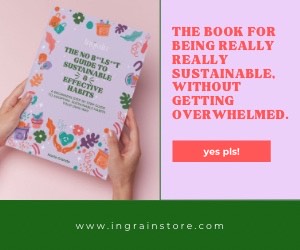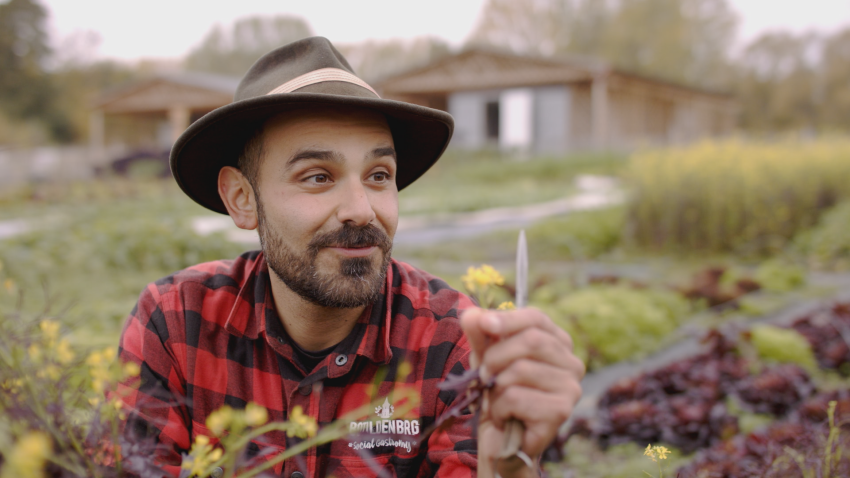I will be watching with interest the discussions taking place at this month’s Global Food Security Summit, which is taking place in the UK. The summit brings together key international development actors to share solutions and forge partnerships to help improve food security and save lives.
A whole range of issues are being discussed, among which the topic of ‘building a climate-resilient and sustainable agriculture and food system’ is the most relevant to us here at Ewhurst Park, a working farm where we are returning a 925-acre estate back to nature.
At Ewhurst, we are firm believers in ‘thinking globally, acting locally’, which means that if we each do our bit in our local communities and cities, then it will benefit the health of the entire planet – every little effort adds up. In particular, we are working with both new and traditional farming methods to show it’s possible to produce food without harming the environment. For example, we use ‘no dig’ farming, where we put compost on top of the soil – meaning we don’t dig into and break up the mycelium network, so the soil is remains enriched rather than being depleted of nutrients. We also have free-roaming cattle and pigs, meaning we can produce healthy organic meat while the environment benefits from the animals, whose manure spreads seeds and encourages biodiversity. Both of these farming strategies are very different to the industrial-type farming that is depleting the land.
So, while we may be small players, we are nevertheless doing our bit as part of a global community with a shared interest in looking after our planet. We are both learning from our peers and sharing what we discover as part of a network of discovery.

Clearly, the need is urgent. Here is how the UK government website describes the challenge facing the Global Food Security Summit: “The world is facing a protracted food security and nutrition crisis, driven by climate change, escalating conflicts, and economic disruptions, exacerbated by inflation, debt stress and the volatility of world food prices.”
The nutrition crisis is huge. According to gov.co.uk: “Nearly 1 billion people experience severe levels of food insecurity, 238 million are experiencing acute food insecurity at extreme levels, 45 million children under the age of 5 are suffering from wasting, the most life-threatening form of malnutrition, and more than one in three people globally are not able to afford a healthy diet… women and girls [are] disproportionately affected.”
The website concludes: “As populations grow and move, and diets change, pressure is mounting across the world to urgently develop more sustainable food systems.”
This is where Ewhurst comes in: helping to develop and demonstrate forms of sustainable food production. This is also the focus of organisations such as the Centre for Agriculture and Bioscience International (CABI), which is an international, intergovernmental, not-for-profit organisation seeking to solve problems in agriculture and the environment. According to The Guardian newspaper, CABI’s scientists are engaged in looking for “nature-based solutions”. Their work meets with the approval of UK development minster Andrew Mitchell, who says the world needs to get away from pesticides and find user-friendly natural solutions, commenting: “If we tackle food disease naturally, it is better for the environment, the soil, people.”
Again, the point being made is that solving the hunger crisis requires that food production becomes increasingly organic, sustainable and nature-friendly.
Of course, transitioning to these new types of farming will take time. In the UK – and around the world – we have grown used to industrial-type farming. So farmers will need support. To this end, at Ewhurst Park we hope to play our part in hosting open days at which we will share our experience of nature-friendly farming with anyone who would like to know more.
However, farmers will need more than just training in new farming methods – there is also a need for what we might call political support. To this end, we are pleased to see that the UK government is intending to offer such support, whether that be through financial packages, partnerships or technical support. The goal is to scale-up innovation. This might feel risky as the UK transitions to new farming procedures, but it strikes me that these are risks we are obliged to take given that climate breakdown is threatening us all.
Indeed, climate change is making the hunger crisis all the more pressing. But, even here, there are solutions. One of our plans at Ewhurst Park is to create an ‘edible forest garden’, which is a type of food production that can survive climate change. In a forest garden, plants grow at different levels – including large and small trees, shrubs, perennials, herbs, annuals, root crops and climbers – just like in a forest. There is an emphasis on producing fruit, nuts and vegetables. A drastic change in weather – such as the weather becoming too hot, cold or wet – may affect some plants, but not all. Unlike with single crop farming, where there is a risk that the ‘wrong’ weather will wipe everything out, something will almost always survive in a forest garden: it is sustainable through climate change. Indeed, the plants in the forest interact and adapt – it becomes a resilient eco-system. This is an approach that has been tried and tested, and we look forward to implementing it at Ewhurst Park.
So, we wish the summit well and trust that momentum is building so that, as a global community, we can continue to develop sustainable and nature-friendly food production. We need it.
Read more of Mandy’s articles in Sublime Magazine
About the Author
 Mandy Lieu is an exclusive columnist for Sublime Magazine, food systems entrepreneur and philanthropist. Having enjoyed success across Asia as a model, film and TV actress, she moved to the UK in 2015 to start a family and join the revolution in local, sustainable food. Now Mandy is transforming her lifelong passion for nutrition and food systems into a business – she owns The Good Plot, a new farm-to-table restaurant and Ewhurst Park a regenerative farm. Visit Mandy’s Blog
Mandy Lieu is an exclusive columnist for Sublime Magazine, food systems entrepreneur and philanthropist. Having enjoyed success across Asia as a model, film and TV actress, she moved to the UK in 2015 to start a family and join the revolution in local, sustainable food. Now Mandy is transforming her lifelong passion for nutrition and food systems into a business – she owns The Good Plot, a new farm-to-table restaurant and Ewhurst Park a regenerative farm. Visit Mandy’s Blog
















